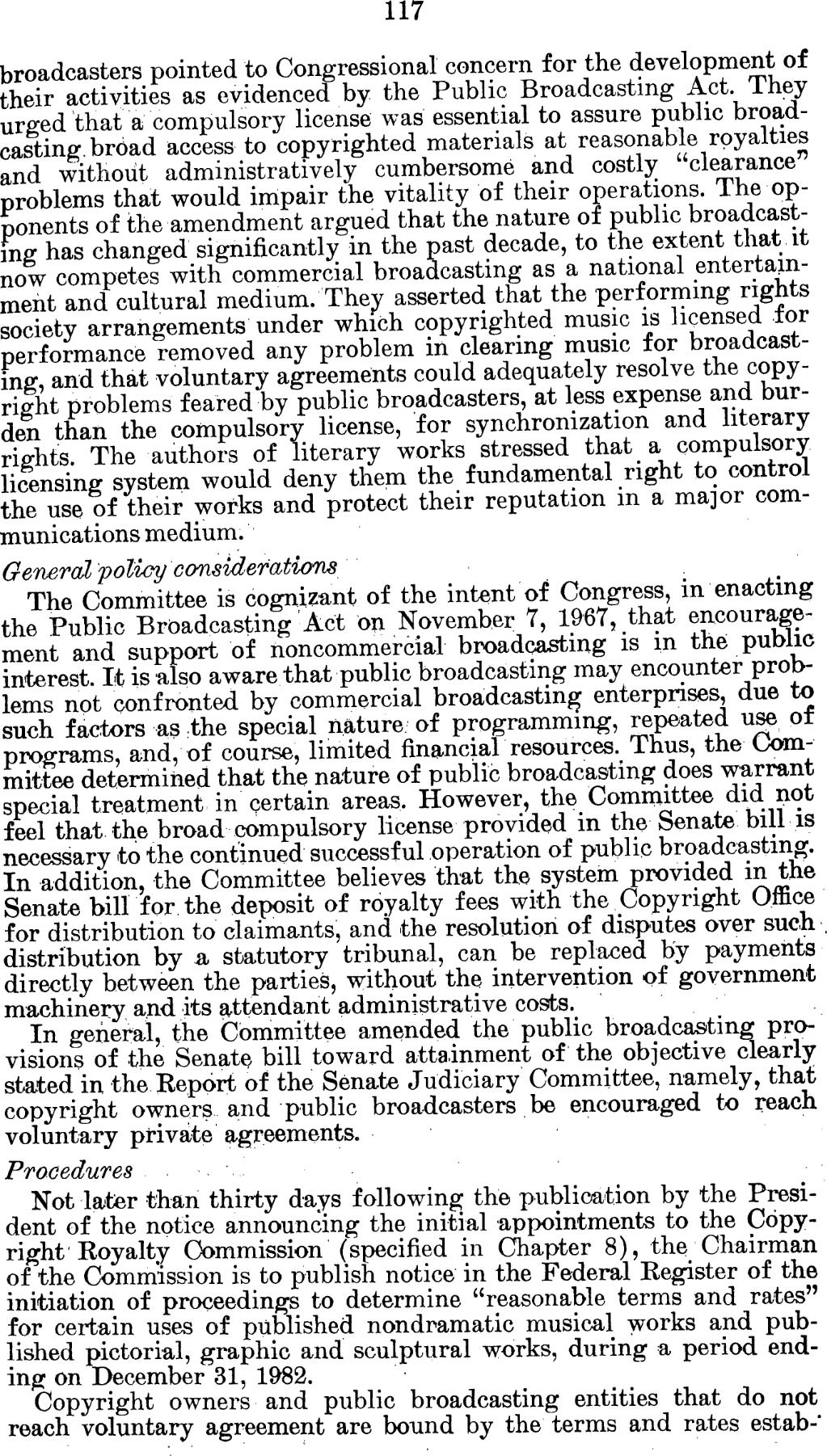117
broadcasters pointed to Congressional concern for the development of their activities as evidenced by the Public Broadcasting Act. They urged that a compulsory license was essential to assure public broadcasting broad access to copyrighted materials at reasonable royalties and without administratively cumbersome and costly “clearance” problems that would impair the vitality of their operations. The opponents of the amendment argued that the nature of public broadcasting has changed significantly in the past decade, to the extent that it now competes with commercial broadcasting as a national entertainment and cultural medium. They asserted that the performing rights society arrangements under which copyrighted music is licensed for performance removed any problem in clearing music for broadcasting, and that voluntary agreements could adequately resolve the copyright problems feared by public broadcasters, at less expense and burden than the compulsory license, for synchronization and literary rights. The authors of literary works stressed that a compulsory licensing system would deny them the fundamental right to control the use of their works and protect their reputation in a major communications medium.
General policy considerations
The Committee is cognizant of the intent of Congress, in enacting the Public Broadcasting Act on November 7, 1967, that encouragement and support of noncommercial broadcasting is in the public interest. It is also aware that public broadcasting may encounter problems not confronted by commercial broadcasting enterprises, due to such factors as the special nature of programming, repeated use of programs, and, of course, limited financial resources. Thus, the Committee determined that the nature of public broadcasting does warrant special treatment in certain areas. However, the Committee did not feel that the broad compulsory license provided in the Senate bill is necessary to the continued successful operation of public broadcasting. In addition, the Committee believes that the system provided in the Senate bill for the deposit of royalty fees with the Copyright Office for distribution to claimants, and the resolution of disputes over such distribution by a statutory tribunal, can be replaced by payments directly between the parties, without the intervention of government machinery and its attendant administrative costs.
In general, the Committee amended the public broadcasting provisions of the Senate bill toward attainment of the objective clearly stated in the Report of the Senate Judiciary Committee, namely, that copyright owners and public broadcasters be encouraged to reach voluntary private agreements.
Procedures
Not later than thirty days following the publication by the President of the notice announcing the initial appointments to the Copyright Royalty Commission (specified in Chapter 8), the Chairman of the Commission is to publish notice in the Federal Register of the initiation of proceedings to determine “reasonable terms and rates” for certain uses of published nondramatic musical works and published pictorial, graphic and sculptural works, during a period ending on December 31, 1982.
Copyright owners and public broadcasting entities that do not reach voluntary agreement are bound by the terms and rates estab-
